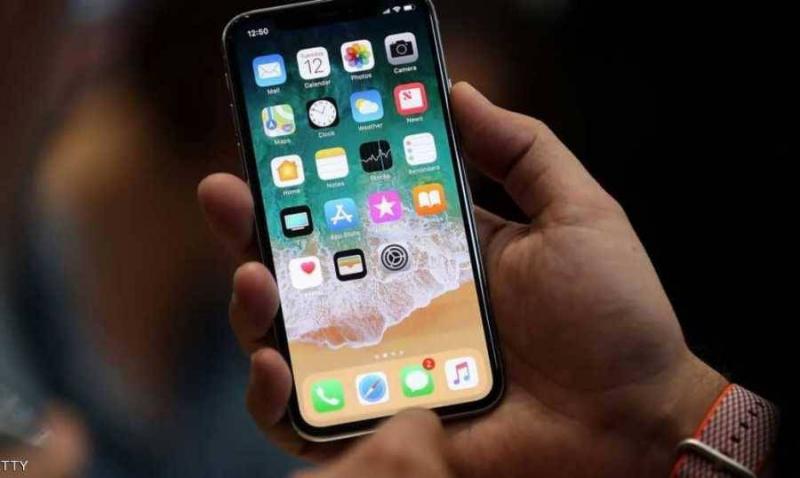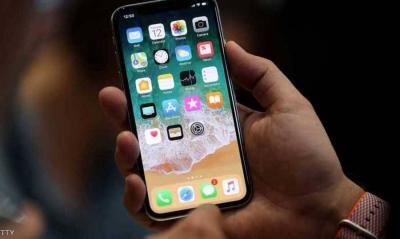The prices of communications and internet services have increased by about 2.5 times at "Ogero" and five times at the two mobile companies. This summary comes from the press conference held yesterday by Minister of Communications Johnny Al-Qarm. However, the issue cannot be reduced solely to costs that will burden consumers with additional burdens above the inflation they have borne during years of crisis; it is also connected to the behavior of the authorities in restricting options regarding covering the cost of operating the sector against increasing prices at their expense and abandoning consumption support after decades of high bills that exceed most price averages worldwide.
**Packages and Prices**
In principle, the mobile companies will offer two prepaid cards at the beginning of July; the first is priced at $4.5 and includes 500 MB, 10 text messages, and 10 minutes for calls, while the second is priced at $7 with 1.75 GB, 5 text messages, and 5 minutes for calls, with pricing based on the "Syrfa" platform. The method of billing for mobile lines follows this pattern: the bill's value is divided by the "Syrfa" platform on the day before the bill is issued.
As for the price per minute for prepaid cards, it is set at 25 cents calculated based on the dollar at 1514 Lebanese pounds; it will become 8 cents based on the "Syrfa" rate. Similarly, for fixed-line calls, the cost is 11 cents based on 1514 pounds and will become 3 cents according to the "Syrfa" rate. Regarding prepaid cards issued before July, their current balance in Lebanese pounds will remain valid at the current exchange rate, even if used after July 1.
The pricing for postpaid cellular services and related internet services has also been adjusted, imposing a bill burden on citizens 4 to 6 times higher than before.
In practice, the new calculation was based on the following equation: all current prices for internet packages and cards priced in dollars are divided by 3 and multiplied by the "Syrfa" rate to determine their selling price in Lebanese pounds. This means mobile prices will fluctuate in relation to the "Syrfa" rate. It is surprising that the pricing continues to be in dollars given that communications are a public service, which the Minister of Communications justifies by the "continuity of the sector to ensure the continuity of companies and maintain their value for privatization."
**Mobile Pricing Paradoxes**
The decision to raise mobile phone service (communications and data) prices by such high percentages was made in the Cabinet, considering the options were limited: to operate the sector at these prices with procedures to halt old networks, or to stop operations entirely. No other options were discussed, and the Minister of Communications raised only this option to the Cabinet, which initially rejected it but later acquiesced. Sources indicate that the shutdown of the sector was very close, as the liquidity available in the two companies was extremely limited and sufficient for operating costs for no more than a month at most. Under this pretext, price increases were approved, but the actual discussion should have been in another place. Was raising prices and other measures the only solution in exchange for shutting down the sector?
The measures were as follows: suspending the second-generation network and halting 80% of the third-generation network in both "Alfa" and "Touch," aiming to reduce operational costs by $42.65 million over the next three years, based on studies conducted by "Alfa" and "Touch."
In reality, this approach to savings will impact consumers for two reasons:
- Consumers will bear the majority of the operational costs incurred by the companies. More than 232,000 subscribers do not use smartphones, hence they will need to purchase new phones compatible with the third generation (3G) within nine months, as confirmed by Qarm to "Al-Akhbar." Most of these individuals belong to poor communities, meaning the savings will come at their expense, or will at least deprive them of access to communications if they cannot replace their phones. Additionally, security and military agencies use about 5,364 old mobile devices, as they rely on second-generation services for security reasons. The Ministry of Communications expects the cost of replacing these devices to be slightly over $160,000, plus the need to invest more than $7 million to replace the technologies currently in use, divided as follows: $2.25 million for a legal interception project and $5.7 million for a geographic location project. To finance these projects, the ministry suggests that the government should cover the costs. Qarm justifies the investment of over $5 million in the geographic location project by stating, "This is a technology we wish to provide."
- The poor quality of service that will result from halting the two networks used for voice calls, noting that the fourth-generation network (4G) is not configured to complete such types of calls and is only used for internet traffic. Specialists indicate that shutting down (2G) and 82% of (3G) will greatly reduce the network's capacity to handle calls, as about 5 million subscribers will use less than 10% of the current capacity. We will see many dropped and unsuccessful calls. This will adversely affect the expected savings and revenues due to a decline in the number of calls because of poor service. However, the Chairman of the Board of "Touch," Salem Aytani, states that the technical studies conducted indicate that the third-generation (3G) network, in the condition it will be starting in July, is capable of accommodating this pressure that will shift from the second-generation network, without the quality deteriorating. So, why was more than $90 million invested in a network that was supposed to serve until 2025? If the second-generation network is used as a backup for the third generation, which network will serve as a backup if the second generation is eliminated? Aytani justifies his statement by saying, "There is no economic justification for continuing to invest in an outdated second-generation network that countries are abandoning." Qarm adds, "The second generation is outdated technology and loses money for the sector."
The price increases can be referred to as "communications pricing engineering" that does not take into account that tariffs should align with the purchasing power of the currency and should not remain conceptually limited to the sector's losses and profits aimed at selling or privatizing. While it is true that the mobile networks are on the brink of collapse, saving them should not come at the expense of consumers; rather, it should involve the state allocating subsidized packages for consumers at a minimum, pricing should be based on more targeted principles across different social segments. The state owns the sector and should allocate sufficient funds for its operation, and as a welfare state, it should not only examine the sector's continuity from the standpoint of losses and profits, but also from the perspective of providing and generalizing service.
The subscription for internet services via "Ogero" fixed line will be as follows: the lowest-priced package is 80GB at a speed of 4 Mbps priced at 60,000 Lebanese pounds monthly. There are two other types of packages: unlimited consumption packages and open speed packages. For unlimited consumption, there are three packages: the first priced at 175,000 pounds, speed (6 Mbps), the second at 250,000 pounds and speed (8 Mbps), and the third at 325,000 pounds, with unlimited capacity and open speed. As for open speed, there are four packages: the first 100GB priced at 90,000 pounds, the second 160GB priced at 145,000 pounds, the third 200GB priced at 180,000 pounds, and the fourth 300GB priced at 250,000 pounds. Prices will be standardized for the mobile companies "Alfa" and "Touch" by offering new cards sold at the "Syrfa" price: a card priced at $4.5 for all subscribers, cards "Alfa Military Line," "Touch Service," "Alfa You Can," "Touch With You" priced at $2.
Regarding the prices of the internet packages for "Alfa" and "Touch," they will be as follows:
- 500 MB: 130,000 pounds.
- 1.5 GB: 170,000 pounds.
- 5 GB: 220,000 pounds.
- 10 GB: 330,000 pounds.
- 20 GB: 500,000 pounds.
- 30 GB: 650,000 pounds.
**A Quarter of Subscribers Change Their Behavior**
It is expected that the telecommunications plan aimed at achieving savings through the shutdown of certain networks and waves, and through price increases, will lead to a contraction in the number of subscribers or in the number of calls and spending on internet services in the sector. According to Minister of Communications Johnny Qarm, "Alfa" and "Touch" expect that 26% of subscribers will change their behavior, meaning that the impacts will affect a quarter of subscribers. The group that will become disconnected from the network or reduce its usage will certainly be those with limited income, making access to communications comfortably exclusive to the financially well-off.




